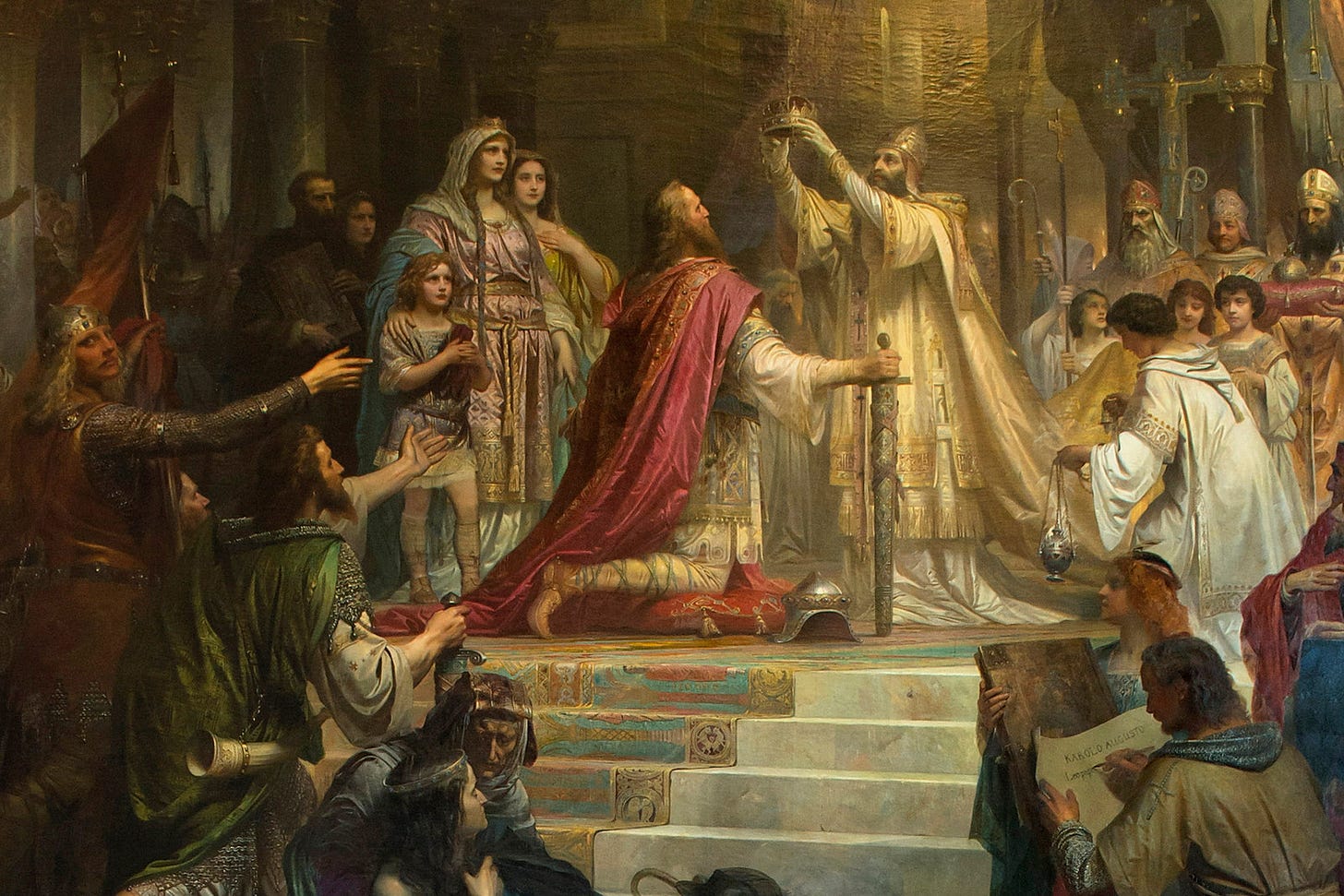Today in History: December 23-25
For those who are celebrating it, a very Merry Christmas to you and yours from Foreign Exchanges!
Foreign Exchanges is mostly on holiday break, but if you enjoy the content here please consider starting 2020 with a subscription! Your support will help grow the newsletter and give you access to a growing list of subscriber-only features including exclusive podcasts and essays.
December 23, 962: A Byzantine army under the empire’s eastern military commander, Nikephoros Phokas, enters and sacks the city of Aleppo. Once an important Byzantine city, Aleppo was captured by the invading Arabs in 637. This 962 sack was emblematic of the Byzantine Empire’s military resurgence in the 10th century and is arguably the most dramatic of Nikephoros’s many victories—one that helped springboard him onto the imperial throne the following year.
December 23, 1916: Britain’s ANZAC forces defeat the Ottomans at the Battle of Magdhaba, in the Sinai. The British victory secured its earlier capture of the city of Arish and began (slowly), their advance northwards up the eastern Mediterranean coast.
December 24, 1144: The governor of the cities of Mosul and Aleppo, Imad al-Din Zengi, conquers the city of Edessa, capital of the Crusader County of Edessa. The capture sent a panic through Christendom that spawned the Second Crusade, which, ah, didn’t go very well.
December 24, 1814: The US and UK sign the Treaty of Ghent, ending the War of 1812 and restoring everything to status quo ante bellum. On the one hand, the war achieved nothing and cost thousands of people their lives and thousands more their livelihoods. On the other hand, the United States got a national anthem out of it. So overall I guess you could say it was a wash.
December 24, 1951: A unified Libya declares its independence under King Idris I. Libya’s three provinces—Cyrenaica, Fezzan, and Tripolitania—were still technically Italian colonies but they’d come under British and French administration in the wake of World War II. Commemorated as Libyan Independence Day.
December 25, 336: The first recorded celebration of Christmas in Rome. This is not to say it was the first Christmas, or the first time Christmas was celebrated on December 25, but it is the earliest record of a Christmas celebration by what could be considered the official Church.
December 25, 800: As you might expect, a lot of Christian monarchs over the centuries have chosen Christmas as their coronation date. Perhaps the most famous of these occurred in 800, when Pope Leo III crowned Charlemagne “Emperor of the Romans” (i.e., Holy Roman Emperor) during Christmas mass at St. Peter’s Basilica. Traditionally it was believed that Leo did this as a surprise, in order to butter up the Frankish king (who ironically wasn’t particularly happy about being crowned). But most scholars nowadays argue that Charlemagne knew exactly what was coming and feigned surprise in order to look humble.

The Coronation of Charlemagne, by 19th century German painter Friedrich Kaulbach (Wikimedia Commons)
December 25, 1100: We don’t need to get into all the various Christmas coronations, like William the Conqueror’s in 1066, but one other of interest happened in 1100, when Baldwin of Boulogne was crowned King Baldwin I of Jerusalem at the Church of the Nativity in Bethlehem. Baldwin was the brother of Godfrey of Bouillon, who was in every important way the first Crusader king of Jerusalem but who eschewed the title of “king” in favor of “defender of the Holy Sepulchre,” arguing that Christ was the only true king of Jerusalem. Practically speaking, Godfrey may have turned down the title in an attempt to assuage resentments among the other leaders of the First Crusade. Baldwin had no such concerns, so he accepted the title and therefore in a very technical sense was the first king of Jerusalem in the Crusader period.

